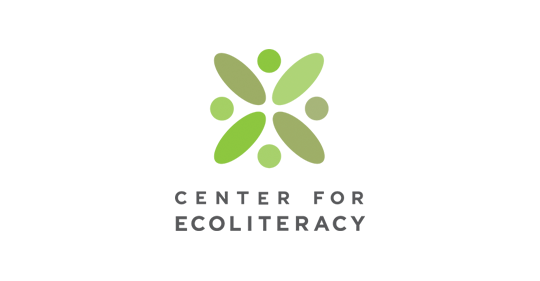Guiding Principles to Restoring Our Relationship to the Natural World
Robin Wall Kimmerer, Braiding Sweetgrass: Indigenous Wisdom, Scientific Knowledge and the Teachings of Plants
Author, Environmental Educator, & Plant Ecologist
- Know the ways of the ones who take care of you, so that you may take care of them.
- Introduce yourself. Ask permission before taking. Abide by the answer.
- Never take the first. Never take the last. Take only what you need.
- Take only that which is given.
- Never take more than half. Leave some for others.
Harvest in a way that minimizes harm. - Use it respectfully. Never waste what you have taken. Share.
- Give thanks for what you have been given.
Give a gift, in reciprocity for what you have taken.
Find more on pollinators, invasive plants, trees, native plants, ADST kits HERE
The Biggest Little Farm
A film that can be found on Netflix or Google Play
Kiss the Ground
Can be found on Netflix or Google Play
 West Coast Seeds- Seed Donations
West Coast Seeds- Seed Donations
Each year West Coast Seeds donates seeds worldwide through our Seed Donation Program. They encourage educators and non-profit organizations to promote sustainable organic growing practices by providing them with the seeds and materials they need to make this happen. You will receive a mystery box of last years seeds. What a fun way to try out new veggies in your school garden.
Pot maker tutorial
Companion Planting Guides
The world needs young people to grow into strong, scientifically literate environmental stewards. Learning gardens are great places to build this knowledge.
The book offers:
- A complete K-8 school-wide framework
- Over 200 engaging, weekly lesson plans – ready to share
- Place-based activities, immersive learning, and hands-on activities
- Integration of science, critical thinking, permaculture, and life skills
- Links to Next Generation Science Standards
- Further resources and information sources.
Megan Zeni runs a gardening prep program in her local Vancouver school. She inspires students and teachers to get out side and play in the dirt. Follow her blog and check out her website for ideas, resources, and pro-d opportunities.
Megan Zeni’s – General school garden guidelines & month by month to do list.
Investigate the effects of outer space on seed germination with your class. Tomatosphere™ is a hands-on program that builds scientific inquiry and experimentation skills. How FUN! How can we include learning in the garden through this investigation?
 Resources – How to start – Grants
Resources – How to start – Grants
Hands on Learning – Healthy Local Food – School & Community Connections
Farm to School programs bring healthy, local and sustainable food into schools and provide students with hands-on learning opportunities that foster food literacy, all while strengthening the local food system and enhancing school and community connectedness.
Victory Gardens: Educational Videos
Victory Gardens: Episode 1
Garden Planning
Victory Gardens: Episode 2
Soil
Victory Gardens: Episode 3
Seeds and Transplants
Victory Gardens: Episode 4
Winter Gardening
Victory Gardens: Episode 5
How to Grow Garlic
Invasive Species Council of BC
ISCBC helps concerned stakeholders work together to stop the spread of invasive species in BC. This site has a search to find what species are invasive to your area and has a special youth/educators link.
If you are interested in visiting a local Comox Valley farm with your school for a tour and some hands on experience please be in contact with Serina Allison, serina.allison@sd71.bc.ca, or Arzeena Hamir, arzeenahamir@shaw.ca, to find the best fit for your class. Also consider having a local farmer visit your class and dive deeper into topics such as a farmer, agricultural technology, and careers in agriculture.
 Second Harvest Curriculum and Learning
Second Harvest Curriculum and Learning
This guide has been produced to help teachers enrich learning and facilitate meaningful dialogue for students around the environmental, social and economic outcomes of food waste and rescue.
 2019 Canada Food Guide & Resources
2019 Canada Food Guide & Resources
Take a look at Canada’s new Food Guide and the resources available through the Government of Canada Website.
This Food Matters Action Kit is loaded with informative resources and hands-on, creative activities to inspire youth of all ages to prevent food waste at home, at school and in their communities. From organizing a Disco Soup party and learning food preservation techniques from elders to building worm composters and solar dehydrators, these activities are designed to encourage youth of all ages to start making a difference right now to prevent food waste.
The Action Kit contains two sets of activities, each addressing food waste from farm to fork. The Kids’ Action Kit is designed for ages 5-13, and the Youth Action Kit for ages 14-25, yet many activities are relevant for all ages, so explore them both!

This is a Manitoba based site that dives into various climate change topics. Here is the direct link to Food and Agriculture. some great ready to use resources.
A wealth of information to support food literacy and garden programs in schools. Look to Farm to Cafeteria for resources, grants, and inspirational stories.
 Teacher Guide and Class Set
Teacher Guide and Class Set
Recommended Age: Grade 8
Each book in ISSUES 21 is built upon an inquiry framework with three main components: an essential question, a sequence of instruction that provides modeling, mentoring, and monitoring; and a culminating writing activity. Students are introduced to the topic via an open-ended inquiry question. Students are challenged to investigate, analyze, and demonstrate knowledge of the real-world issues.
NOTE: all ISSUES 21 resources are booked through the LRC
Grade Level: Resources available for grades k-12
Understanding Food and Climate Change: A Systems Perspective explores the links between food systems and our changing climate with an emphasis on systems thinking. A systems approach helps to illuminate how seemingly disconnected phenomena are often dynamically linked and can be understood best when viewed in a larger context. This collection of essays contains an extensive bibliography that provides resources for further investigation.
 Food Literacy Lesson Plans & Resources
Food Literacy Lesson Plans & Resources
BC Dairy Association’s nutrition education programs and materials are designed to help make healthy eating achievable for all. This program shows how educators can help children learn how to enjoy food and eat well. These resources make it easy to teach nutrition using BC’s new curriculum; available for the K-12 years.
%20(1).pdf.png) SPCA Guide
SPCA Guide
 The Farm Food Connection (1) (1).pdf
The Farm Food Connection (1) (1).pdf
The Farm Food Connection introduces the animal welfare aspect in food production. Students will make connections between their life and farms, be introduced to the varying living conditions that farm animals have, and to consider the needs that must be met within those living conditions. Students will be asked to take what they have learned and discuss where it fits into their individual value system. From there, they can choose to educate their communities or families on what they have learned so that more people can make educated decisions when it comes to our food.
AITC-C exists to help students across the country understand and appreciate how diverse agriculture truly is. These resources will help younger generations to understand that our farmers work hard to produce good food. For students to see for themselves that our farmers care about the land and animals they grow. Help them understand that there is so much to learn about agriculture in our community and our world.
An excellent resource for ready made lessons around a wide variety of food and agriculture related topics for all grades. Use the search tool to find topics to pertain to what you are searching for. All Canadian sourced material.
- Apprentice Chief
- Bio-security on the farm
- Buddy Rabbit
- Busy Bees
- Choose Wisely
- Dairy Days
- Energy
- Food Chains
- From sheep to sweater
- Genetics to bio-technology
- Meet the farm animals
- Properties of and changes in matter-bread
- Pumpkins
- What’s to eat
Agriculture Education-Educational Kit – Grade 7-9 resource- Agriculture and Environmental Educational kit! Fun, hands on investigations and critical thinking activity guide students to reflect on multifaceted questions on environmental sustainability, through the lens of Canadian agriculture.Topics covered include soil health and fertilizer use.

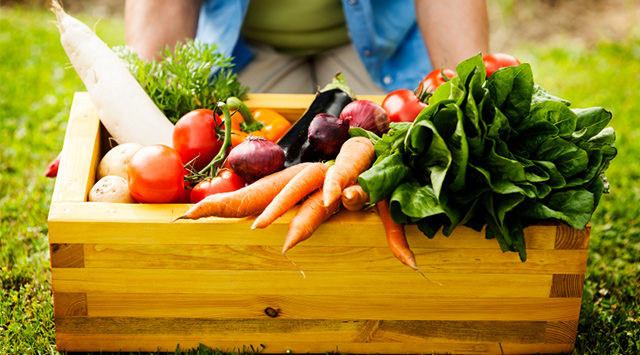

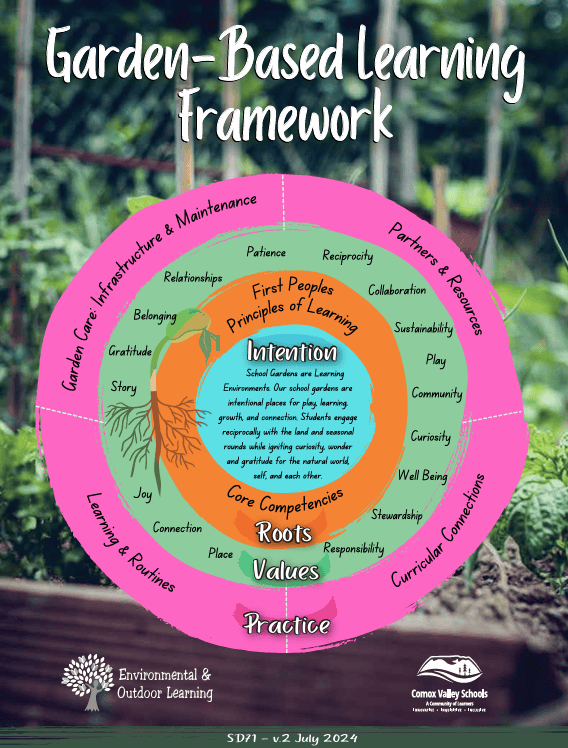

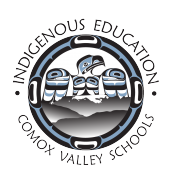
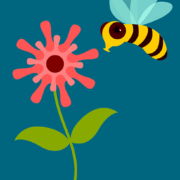

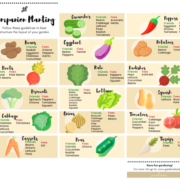







.png)

